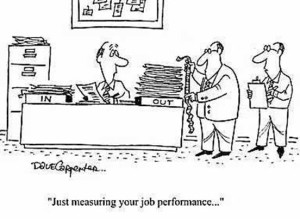10 Things PR People Should Do Every Workday
In keeping with the spirit of the New Year/new leaf theme for January,
we’ve been trying to harness the burst of resolution motivation to establish
habits that lead to better efficiency, productivity and effectiveness, both
personally and collectively, this year. And one source of inspiration was J.T.
O’Donnell’s article on LinkedIn about her approach to the “how do I get it
all done” conundrum.
As the time-pressed CEO of Careerealism Media, O’Donnell suggests that we limit our daily to-do list to 10 things, which includes a mix of job tasks, social chores and developmental goals. Now, before you ask – yes, she does more than these 10 items every day, but these, she says, are the 10 she chooses to do with consistency because they’ve proven the best way for her to grow her career and business over the years.
This, of course got us thinking, “What would the list look like for PR professionals?” Again, these aren’t the only things we think you should be doing each day, but rather a list of suggestions to help promote growth over the next 12 months. So see below for our ideas, and feel free to add your own two cents in the comments!
1. Scan the news. Take 10-15 minutes every morning to do this — and not only the top national news, but also the news in your company’s or clients’ industries. It’s a good way to stay on top of industry and competitive developments, not to mention it’s a necessity for identifying news jacking opportunities.
2. Make a to-do list. As every PR pro knows, ours is a reactive business, which means planned activities can get pushed aside easily. Stay organized and on track with daily task lists that keep you accountable to the proactive and maintenance items that often get overlooked in the heat of the (inevitable) times of crisis.
3. Contribute to the conversation. We’re talkin’ social media here, but the key is to keep it meaningful – not mindless. Find a handful of valuable articles, blog posts, infographics, etc. that pertain to your clients and their industries, the PR profession, or even just business in general, and share with your network.
4. Learn about a new tool or technology. This means not only familiarizing yourself with your clients’ products and services, but their competitors, as well. Got an interest in a particular area? Bone up on a new site, app, tool or technique, and teach your colleague so you can all be knowledgeable about what’s out there.
5. Connect…offline. Step away from the computer. Yes, cut the digital umbilical cord, and go grab a cup of coffee with a client, invite a reporter to happy hour, attend a local conference or try out a new network event. After all, business is about relationships, and you can’t keep connections as strong behind a keyboard.
6. Write. It’s probably the task that gets pushed off to the last minute because there are emails to answer, calls to make, and just about any other task seems more appealing than staring at a blank page with a blinking cursor. But flex the writing muscle, and it WILL get stronger.
7. Get momentum with media. Keep goals focused, actionable and realistic – then chip away at them each day. Start with a short list of six to eight media outlets that are a good match for your client, research contacts, get to know them, read their content, get creative with your pitches and connect with them accordingly.
8. Engage your clients. Ask questions that will help you understand their situation better. Make time to regularly check in with them to get to know how they think and feel, and encourage them to share observations regarding the progress of the project and your performance so you can course correct before it’s too late.
9. Make it measurable. Force yourself to develop and adhere to a method for tracking metrics. Not only does it allow you to create a benchmark for progress, but it also provides a means with which you can communicate those intangible successes to your clients. Just keep the process seamless, simple and straightforward.
10. Do stuff that inspires you. It sounds fluffy, but it’s arguably the most important: Allow yourself the space to get creative, let your mind wander and explore your imagination. It feels contrary to marching toward those business objectives, but granting yourself permission to dream is really when the best work happens.
Photo/Image by David Carpenter

